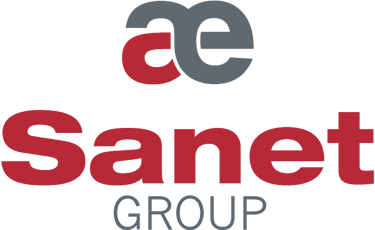THAILAND BOARD OF INVESTMENT
THE THAILAND BOARD OF INVESTMENT PROMOTES INVESTORS AND EXEMPTS FROM TRADE RESTRICTIONS
SANET LEGAL & ACCOUNTANCY SUPPORTS YOU WITH ITS EXPERTS TO APPLY FOR PROMOTION BY THE THAILAND BOARD OF INVESTMENT
The fact that Thailand has made the leap from a tourist destination to a highly modern industrialized country is due in no small part to the promotional measures of the Thailand Board of Investment “BOI”. Through clever tax and other incentives, the BOI has made Thailand the stronghold of the automotive industry in Southeast Asia. It also enables trading and servicing of modern capital goods for qualified foreigners who would otherwise be excluded from these activities in Thailand.
Sanet, the European Consulting Group in Thailand consultancy in Thailand, offers for the first time a comprehensive overview of the basic BOI Promotion of the incentives, the industries currently supported and the special terms of the respective support conditions. Yet, we do not only provide information on the incentives for Foreign Direct Investments (FDI). Rather, we also explain how the BOI in Thailand enables foreign manufacturers to trade their products in Thailand with a wholly owned subsidiary (WHFO), as well as to carry out installation and maintenance for factory equipment and investment goods. Without BOI-Approval, both are prohibited for foreigners.
Finally, we also list which activities of modern service providers, for example those in the IT sector, that are supported by the BOI in Thailand.
WHAT IS THE BOI THAILAND AND WHAT MAKES IT SO IMPORTANT?
The Office of Thailand Board of Investment is a government agency. Its special importance results from the fact that it:
Reports directly to the Prime Minister’s Office, i.e. the highest political decision-maker in the executive branch.
The core task of the BOI Thailand is to promote significant and desired investments for the country. This means that:
Funding is (only) granted to industries that are beneficial and politically welcomed for the economic development of the country.
The funding targets are adjusted from time to time. However, previously granted concessions remain in place even if the objectives and the subsidy catalogue change.
Thai and foreign companies are treated equally in every respect, including tax holidays or deductions.
The incentives also applies to Thai foreign investments.
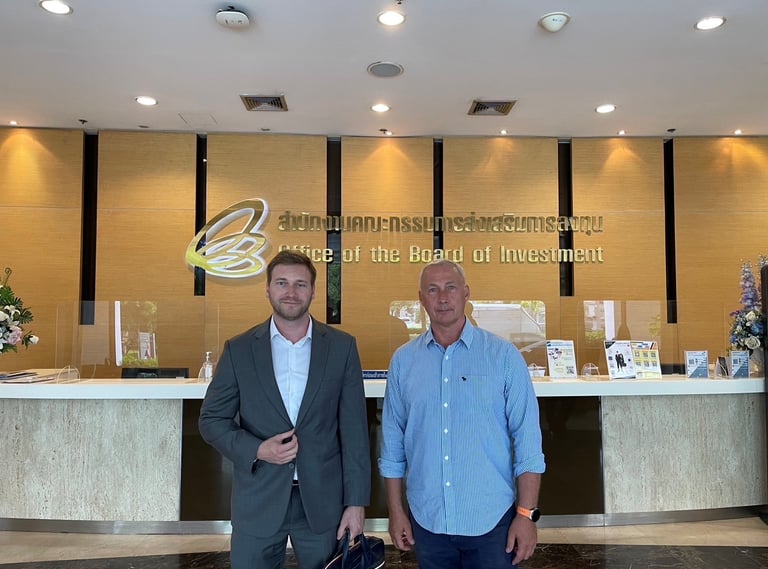

ARE THERE "BOI COMPANIES IN THAILAND"?
It is also important to understand that, contrary to common belief, a Company Limited does not lose its legal character or becomes a “BOI company”. Instead, the BOI just promotes clearly defined projects of a company. Any regular Company Limited can submit several projects for funding, and it always remains a Company Limited, yet with one or more BOI promotions. Therefore, also there is legally no BOI Company Registration but just a “BOI project application”.
Each new, approved project therefore receives the benefits listed below for the income it generates.
For example, a company that receives the privileges of a Trades & Investment Service Office (TISO) based on a BOI Certificate Thailand is then authorised to trade and provide services. However, it does not become a TISO Thailand from the Company Limited, but only has the privileges as a foreign owned company to carry out the activities mentioned of a Trade & Investment Service Office.
REQUIREMENTS FOR PROMOTIONS
The prerequisite for any BOI promotion is the provision of specialized services in the following industries:
Agriculture, food, medicine and biotechnology.
Chemicals, petrochemicals, metals and materials, and utilities.
Automotive and mechanical engineering, electronics and electrical equipment.
Digital technology, creative industries and high value services.
But be careful: Each of these categories is sometimes subdivided into a very large number of individual industrial sectors. There are numerous criteria for each industry to determine whether and to what extent an investment is eligible for subsidies.
As a rule, legal servicer alone is not enough to assist here.
This is why the Sanet Group’s lawyers specializing in BOI Certificates Thailand from Sanet Legal & Accountancy work closely with the entrepreneurial management consultancy of Sanet Asian Advisors. With other words, the Sanet Group more or less is your Bangkok BOI One Stop Service Center!
Every single business case is discussed with you in detail. This is the only way to ensure that the application for a BOI claim is submitted in the correct category. We also assess which category, and activities will enable you to achieve the best possible funding.
Again, this is why the Sanet One-Stop Service for BOI is the right approach for approach.
WHAT KIND OF INCENTIVES DOES THAILAND BOARD OF INVESTMENT GRANT?
In principle, there are various support instruments that can be considered. They all depend on the supported activity objective and the performance of the promoted company. Not all funding measures apply to all subsidized activities. There is a comprehensive catalogue here.
It is important to know that cash grants, i.e. “direct subsidies or funding”, are not part of the incentives. And that’s a good thing. Subsidies make companies lazy. An investment must pay for itself. Although BOI support makes it easier to decide in favour of an investment, BOI does not intend to finance an investment.
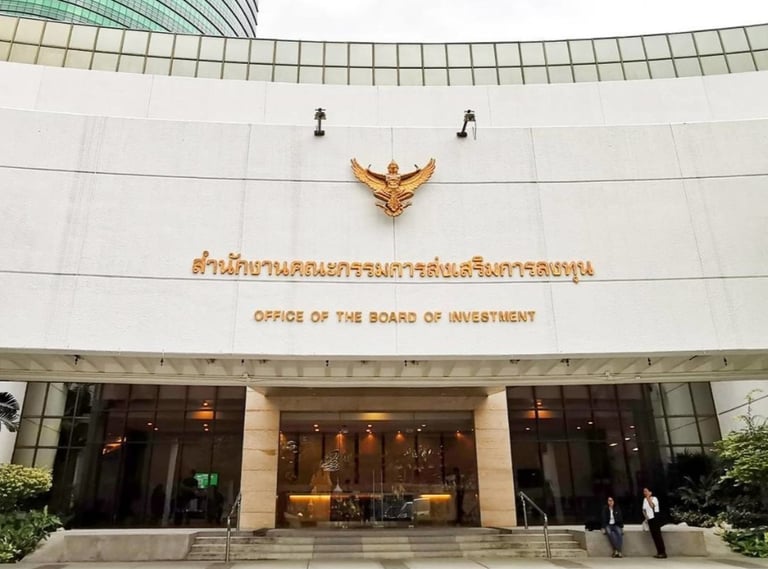

Tax Incentives
For investors, tax privileges are initially in the foreground. The core of these privileges is:
The exemption Corporate of Income Taxes (CIT) for up to eight years and the reduction of 50 % for an additional five years.
The exemption of import duties on machinery and equipment needed for the investments.
The – at least temporary – reduction of import duties for raw materials and other essential materials for a planned production.
Further advantages and privileges for investors:
Exemption of import duties on essential materials used in research and development.
Exemption of import duties on raw materials and essential materials used in production for export.
A double tax deduction for costs incurred for transport, water supply, and electricity.
Tax deductions for installation and structural alterations is increased by 25 %.
The exemption of taxes on dividends arising from the requested project.
IMPORTANT: Losses may be carried forward
The BOI thinks in entrepreneurial terms: investors might ask themselves what benefit a tax exemption of five years offers, for example, during the initial years of an investment generally do not generate any profits anyway. The BOI has also thought about this:
Initial losses in the first few years of the supported company can generally be carried forward to the period after the end of the tax relief.
As a rule, tax rebates are limited to the amount that the investor is eligible to invest. There is therefore a so-called “CAP”. Nobody should save more tax than he has spent for his investment.
However, there are exceptions to this. They can be found below under “Special funding for certain investor services”. These can not only lead to the cancelation of this “CAP”, but also to up to 200% of the investment being returned as tax savings.
Non-tax Incentives
Investment decisions are not only positively influenced by tax benefits. The reduction of bureaucratic obstacles and risk management also often play a decisive role. Especially for foreign investors, the Thailand Board of Investment shows what is important:
Foreigners are normally prohibited from acquiring land in Thailand. However, the BOI then authorises the acquisition of land in full ownership of its own factory. This reduces the investment risk, as land ownership can then be freely transferred and later even resold at a profit.
Authorisation to remit or take out money overseas in foreign currency. The free repatriation of profits is also possible under certain conditions.
Even in the pre-investment phase, employees are granted a visa that allows them to plan the investment locally and explore the opportunities. This also means that these employees do not require a general work permit.
Companies settled in Thailand under BOI promotion may also obtain work permits for special skilled workers and experts under simplified conditions. Most of the typically expensive requirements for visa and work permits, such as employment or 4 Thai people for each foreigner, will no longer apply.
Special Permission for Certain Investor Services
The Thailand Board of Investment grants additional benefits for certain activities that help the country as part of an investment. This usually involves an extension of the tax exemption or additional depreciation. What is exciting here is the abolition of the “CAP”, i.e. the rule according to which you may not receive more tax savings than you have spent on investments. The investor receives special terms for activities such as:
Enhancing the personal development of employees.
Promotion of competitiveness, for example product design and packaging, if local companies are commissioned.
Development of local suppliers.
Further criteria for additional funding:
Investments in 20 provinces with low average incomes.
Investments in industrial park qualified by IEAT (Industrial State Authority of Thailand).
Special investments at the Eastern Economic Corridor (EEC).
Local social development programs at the investment location.
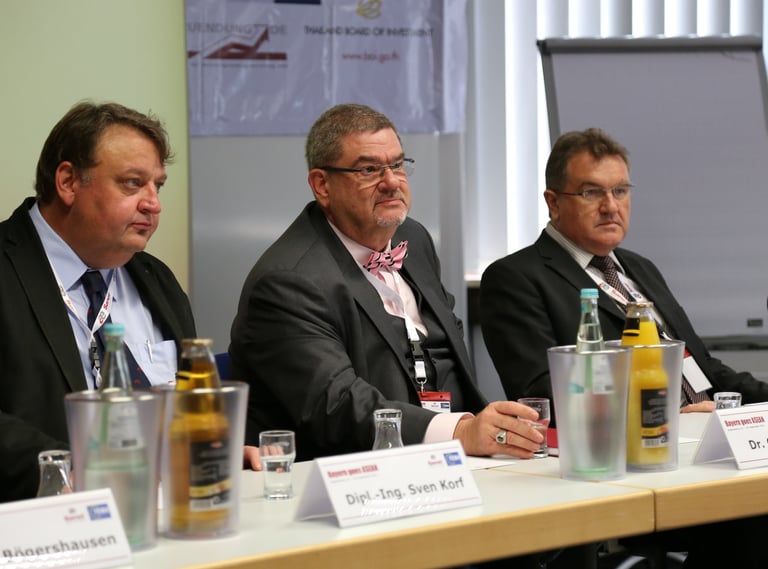

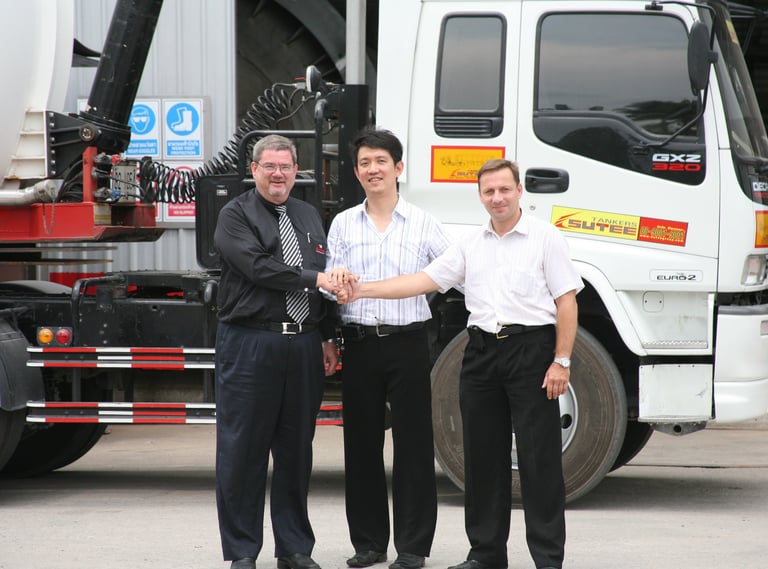

SERVICES FOR TRADE AND TECHNICAL SERVICES
Under Section 10, High Value Services, the Thailand Board of Investment can allow foreigners to apply for a Foreign Business License from the Ministry of Commerce through an “Approval Letter”.
This license then gives the applicant the opportunity to carry out activities that are otherwise reserved for majority Thai-owned companies. Without such a license based on a confirmation by the BOI, the exercise of these activities is threatened with heavy fines and prison sentences, even for the foreign managing directors. In this context, please also note our overview of Market Entry in Thailand.
The most important of these services, which the BOI can support on request, are:
The Trade and Investment Support Office (TISO)
The TISO BOI Thailand allows technical and engineering services, such as technical consulting.
In connection with machinery, equipment and tools of associated companies, it also allows for the installation, maintenance and repair of this equipment, as well as the import and resale to dealers of the corresponding capital goods.
Products procured in Thailand, for example for the maintenance or repair of machinery, may also be traded.
In addition, property may be rented out to affiliated companies. Affiliated companies may also be supported with services such as accounting, HR services, and sales & marketing.
Tax advantages and the exemption of import duties do not apply, however, the permission to own land is possible.
The most important conditions of the TISO are:
A capital of the company of at least THB 3 million (approximately EUR 75-80,000).
An investment of at least THB 1 million (approximately EUR 27,000).
Annual administrative costs of THB 10 million (approximately EUR 270,000).
But be careful: The direct cost of employees conducting the services are not regarded as “administrative cost”A detailed business plan, on which Sanet Consulting Experts will advise you professionally.
The International Procurement Office (IPO)
The IPO, which was reintroduced as a BOI incentive in spring 2021, is intended to ensure an optimal supply of raw materials and components for the Thai export industry. Thus, trading companies wholly owned by foreigners (WFOE) are also encouraged to involve in this effort.
The IPO also allows foreign owned entities to do as follows:
Import duty-free raw materials, parts and components.
These goods can be sold to wholesalers or directly to the export industry in Thailand.
But be aware: You will need to report exactly which imported good are sold to exporters and which are only to general wholesalers!
This distinguishes the IPO from other service provider incentives, as it exempts import duties and promote the supply also to industrial end users.
An IPO must meet the following requirements:
Investors must establish a company with at least around €250,000 in paid-up capital.
You must maintain your own warehouse with a stock of goods.
You must have an IT-supported logistics system.
After all, they must carry out typical retail activities such as quality inspection, packaging and order picking.
The IPO must procure goods from various sources, including local sources.
The investor must submit a detailed business plan.
The International Business Center (IBC)
The IBC under BOI promotion serves Thailand’s interest in making the county an attractive Business Hub for Southeast Asia. The IBC therefore also offers special privileges for its Managing Director, including significantly lower income tax rates (currently 15 %) and a 10-year visa.
The activities that the applicant will present in a business plan should include:
General administration, corporate planning and collaboration.
Research and development of products, technical support for the parent company.
Marketing and Sales Promotion.
ATTENTION: Direct sales talks with end customers are not permitted activities for the IBC. However, connecting with customers through marketing and advertising activities can also be helpful.Procurement of raw materials and parts.
The IBC may also carry out installation, repair and maintenance for the parent company’s products, but these services may not be commissioned and paid for by the Thai customer, but only by the parent company.
Duty exemption for the import of machinery for R&D or training measures.
Other permitted activities of the IBC
Personal administration and training
Financial advice
Lending
Economic and investment analysis and research
Credit management and control
Financial management services of the Treasury Center
International trading business
Lending to affiliated companies
Rent of an office or factory building for an affiliated company
Other support services as approved by the Board of Directors
The following conditions must be met:
The services may only be provided and invoiced to affiliated companies.
The paid-up share capital must be at least 10 million baht.
The project must have at least 10 qualified employees (except if it mainly conducts financial transactions, in which case 5 experts are sufficient).
In the case of international trading or leasing, at least one other of the approved activities must be carried out.
The same applies to the granting of loans to affiliated companies.
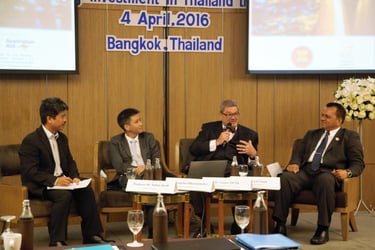

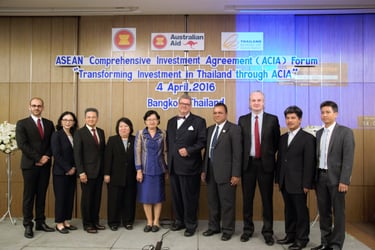

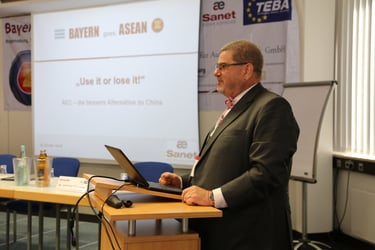
The Application Procedure Step by Step
STEP 1: Firstly, clearly define the initial motives and goals for your investment. This will make it easier for you later to align the possible promotions with your motives and objectives. It is not uncommon that a promotion is granted, however, the investor later realizes that the approved activities cannot help him to achieve his goals.
STEP 2: Based on this, it must be carefully planned which activities are eligible for the requested approval. For example, anyone is permitted to set up a production facility in Thailand without BOI permission. Yet, on the other hand, BOI-supported producers are not permitted to conclude service contracts for their own products.
Even trading of spare parts or other products of the parent company is also prohibited. Therefore, in certain cases TISO approval by BOI may be more important than a production only supported by a few years. Moreover, it is then often necessary to apply for various subsidies.
STEP 3: If you are unsure about the terms of your intended application, you should arrange a non-binding preliminary and confidential meeting between your Sanet advisor and the BOI Office. In such an informal and confidential meeting, they will discuss the application’s objectives in a confidential manner and determine any areas requiring clarification.
STEP 4: Now it’s time for the business plan. Around the world, state funding measures require a detailed presentation of the investment plans, financing, projected profits and losses, personnel planning, technical details about production and many other parameters.
ATTENTION: Do not worry for one thing: The Thai BOI does not require the “disclosure” of business secrets. And Sanet consultants will advise you on the preparation of all documents on request. As your authorized representative, we will also clarify any intermediate questions directly with the Officer at the BOI.
STEP 5: In practice, the Sanet experts will discuss the completed application with the BOI once again to prepare any final changes.
STEP 6: The next step is to submit the application.
STEP 7: No later than ten days after submission.
ATTENTION: From now on, you may start investing. You can buy or rent land, construct buildings, purchase machinery or hire employees. All investments then count as part of the project. Do not invest before submitting your application! Any expenditure you make before submitting your application does not count as an investment. This can result in considerable disadvantages, or at least may reduce the amount of tax savings through the “CAP”.
ATTENTION: Do not regard numerous questions or doubts from the BOI employee as ‘annoying questions’. The Officer is usually on your side. However, at the end of the day, he must present the project to an approval committee. He will have to deal with potential objections by the committee. Nothing is more unpleasant for the presenting Officer than when this committee sends him ‘back to work’ with a rejected project. In interviews, he therefore looks for weak points on the one hand and for arguments on the other when he must present the project later.
The investor interview. Here you will present your application and the planned project to the project manager, preferably supported by a visual presentation.
STEP 8: This is followed by the ISO-regulated processing and testing time at the BOI. Depending on the scope of the project, the decision should be made after 40-60 working days.
ATTENTION: “Working days” also means that neither weekends nor public holidays are included. The waiting time for a response to possible queries to the investor also interrupts the specified deadlines. Occasionally, illness or other incidents may also delay the time somewhat.
STEP 9: Finally, the time has come: you will receive your BOI Confirmation Letter confirming that your application has been approved. This letter contains all the incentives granted, but also all the conditions that you must fulfil before receiving the certificate and during the project.
Now it is a matter of paying in the promised capital, for example, and recognizing and complying with the conditions for the incentives by signing the terms. Your further duties also include regular BOI reporting, for which you will usually employ a specially trained employee at a production company. This is where Sanet Manpower, the Thai recruitment agency of the Sanet Group, helps with the search for the right personnel.
STEP 10: If, as in the case of a TISO, the BOI can only issue an Acceptance Letter for the Ministry of Commerce, then the Foreign Business Certificate must still be issued there. The waiting period is 30 days. The application will be done by the qualified Lawyers of Sanet Legal and Accountancy.
A WORD ABOUT THE TIME FRAME
As mentioned, the processing time at the BOI is regulated according to the BOI’s own ISO specifications. Most delays usually arise from the investor’s preparation process:
Often the project is not well planned. A Business Plan outlining all investment costs including construction measures, machine procurement, employees and their functions, and technical drawings, becomes almost impossible if the data were not collected properly. The target customers and the income by products or services may not be prepared or the cash for the current assets not prepared.
On our "Project Management" page you will find instructions on correct project planning and project organization. This also contains a sample planning concept.
Under "Investment in Thailand" we also describe the step-by-step procedure for good project preparation.
It is also helpful to download the article "How to prepare an investment"
The ideal solution is a workshop with Sanet. Here, we go through all the steps together in one or two days, and Sanet contributes its experience from 20 years of investment consulting.
You can expect the following timing:
a) Strategy Workshop, project structure and follow-up decisions
b) Preparation of the BOI application with all documents until submission
c) Examination time at the BOI
d) TISO: Application for Foreign Business Certificate
2 Months
2 Months
4 Months
1 Month
If everything goes according to plan, you should reach your goal in 7-9 months, depending on the application.
You can also use this time to search for a location, purchase or rent property, possibly invite tenders for construction or establish rented production land, and, importantly, to recruit the personnel. Sanet, the one-stop service for investors in Thailand, is at your side every step of the way.
a) Strategy Workshop, project structure and follow-up decisions (2 Months)
b) Preparation of the BOI application with all documents until submission (2 Months)
c) Examination time at the BOI (4 Months)
d) TISO: Application for Foreign Business Certificate (1 Month)
CONTACT US
FOR A FREE CONSULTATION
Whether you have questions or would like to explore how our legal services can support your business, we are here to help!
Connect
© Sanet Group (2025). All rights reserved.
2/1 Soi Rom Klao 25/2
Bangkok 10520, Thailand
+66 2 737 642-0
management@sanet.co.th
www.sanet-group.com
Business License
No. 0105548029419
Recruitment License
No. 1900/2567
2/1 Soi Rom Klao 25/2
Bangkok 10520, Thailand
+66 2 737 642-0
partner@sanet-legal.com
www.sanet-group.com
Business License
No. 0105560114781
2 Soi Rom Klao 25/2
Bangkok 10520, Thailand
+66 2 737 642-0
management@sanet.co.th
www.sanet-group.com
Business License
No. 0105543069391
2/1 Soi Rom Klao 25/2
Bangkok 10520, Thailand
+66 2 737 642-0
management@sanet.co.th
www.sanet-group.com
Business License
No. 0105567088611
Denk IT GmbH
An Der Aspe 7
36137 Großenlüder
Hessen, Germany
www.denkit.com
+49 661 250090-20
